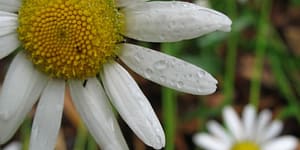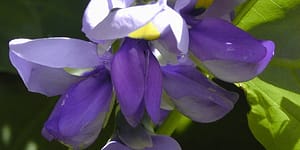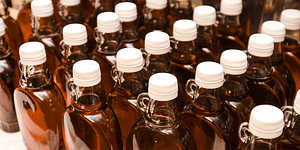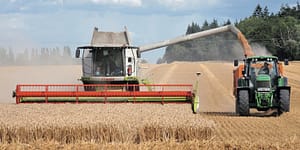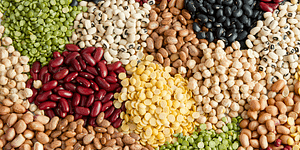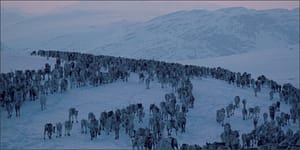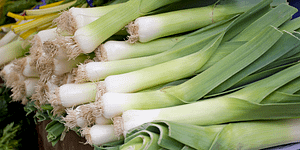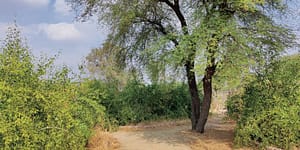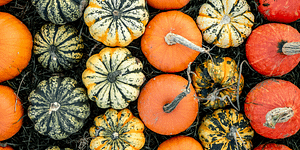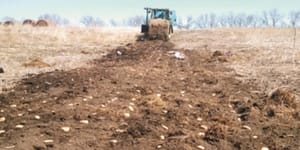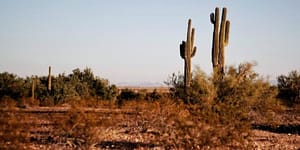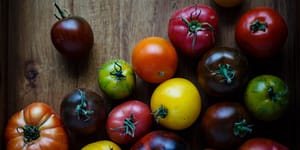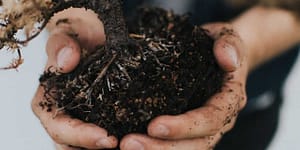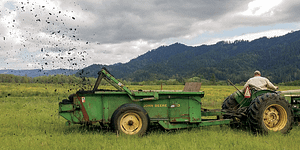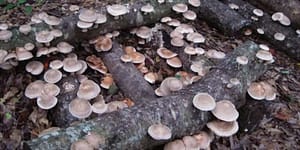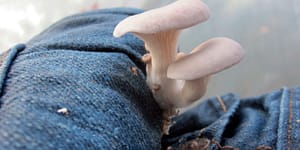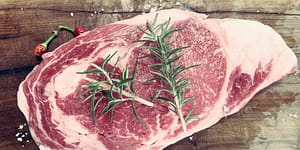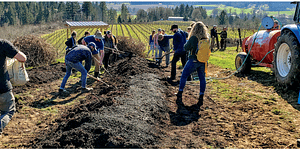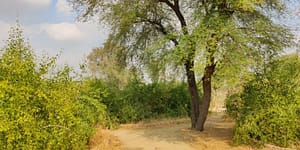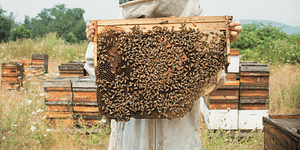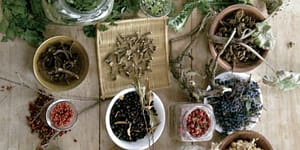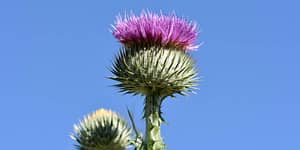Chelsea Green Blog
Nature & Environment
Oxeye Daisy: A Plant for the Pollinators
Oxeye daisies are one of the most important plants for pollinators including beetles, ants, and moths that use oxeye daisies as a source of pollen and nectar. Instead of thinking about removing a plant like oxeye daisy, consider how you can improve the fertility and diversity of habitat resources in your home landscape, garden, or…
Read MoreAbundant Kudzu: Uncovering the Many Uses
This long-lived perennial legume is used for forage and erosion control. Kudzu is edible with many medicinal uses and other applications. Pollinators of all kinds love its prodigious lavender blooms!
Read MoreBeyond the Maple: Birch & Walnut Syrups
Move aside, maple! We have two new syrups to add to the table. Read on for insights on tapping, selling, and eating syrup from walnut & birch trees.
Read MoreWhy Modern Wheat Is Making Us Sick
Why is modern wheat making us sick? That’s the question posed by author Eli Rogosa in Restoring Heritage Grains. Wheat is the most widely grown crop on our planet, yet industrial breeders have transformed this ancient staff of life into a commodity of yield and profit—witness the increase in gluten intolerance and ‘wheat belly’. Modern…
Read MoreBecoming A True Seed Detective: Mastering the Mission
Did you ever wonder how leeks, kale, asparagus, beans, squash, and corn have ended up on our plates? Well, so did Adam Alexander, otherwise known as The Seed Detective. The following is an excerpt from the The Seed Detective by Adam Alexander. It has been adapted for the web. My Seed-Detective Mission Crammed into two…
Read MoreWho Are The Reindeer Whisperers?
Most people know that the big man in the North Pole has a team of reindeer waiting to deliver presents, but not as many know who is taking care of these animals behind the scenes: the Sámi people of Norway. This is an excerpt from The Reindeer Chronicles by Judith D. Schwartz. It has been…
Read MoreThe Search for A Welsh Leek
How did the modern leek become what it is today? On his quest to save our heritage produce, Adam Alexander (otherwise known as the Indiana Jones of vegetables) unveiled the complex history behind leeks and many other veggies, along with how they made our way to our dinner plates. While on this mission, Adam started…
Read MoreThe Magic of Mini-Forests
“Hannah Lewis describes a gift to a despairing world…There may be no single climate solution that has a greater breadth of benefits than mini-forests…[and] can be done by everyone everywhere.”—Paul Hawken, from the foreword Mini-forests are simple to create, satisfying, and can get us closer to improving our climate and future. Read the foreword by Paul…
Read MoreGourdness Gracious! The History of Pumpkins and Gourds
When you think of pumpkins, do you think of Halloween or a sweet dessert? But how did pumpkins become the holiday staple they are today? Keep reading to learn more about the rich history of this sweet fall edible icon! The following is an excerpt from The Seed Detective by Adam Alexander. It has been adapted…
Read MoreAll About Kale: The Evolution of This Popular Green
Once considered an undesirable vegetable mainly fed to cattle, kale has evolved over the years to become a powerful superfood!
Read MoreThe Importance of Planting Cover Crops
If you want to improve your soil, one of the most important things you can do is to plant cover crops. But they need to be selected with a purpose.
Read MoreArid Agriculture: Strategies to Reduce Heat Stress in Crops and Livestock
Become more resilient when the temperatures are on the rise to reduce heat stress and produce food in even the most arid environments.
Read MoreHow to Save Tomato Seeds
As your favorite variety of home grown tomatoes start ripening on the vine this summer, be sure to save those seeds for next year’s planting. It takes a bit of care to get the seeds out of the gelatinous tomato goo they’re suspended in, but once you’ve done it you can use those seeds to…
Read MoreFocusing on Soil Remediation with Fungi
Nature does what needs to be done if we let her. The fungi and the plants will sing this soil redemption song for us. As the fungi and the plants always have.
Read MoreLand Degradation: The Secrets of Fixing the Soil with Biochar
Some of the world’s most productive and resilient soils contain significant quantities of “natural” biochar. Author Kelpie Wilson challenges us to “change our perspective from ‘too much carbon in the air’ to ‘not enough carbon in the soil.’ We are good at being miners and exploiting resources, so let’s mine the air and stash the…
Read MoreDrill, Plug, Wax, Wait: 6 Simple Steps to Growing Mushrooms Outdoors
Mushrooms: they’re versatile, they’re delicious, and they’re extremely simple to grow in your yard or garden. We have a mushroom growing method that’s so simple, you have no excuse not to try it out. All you need is a log or tree stump, some mushroom starter, and a couple of basic tools. And you will…
Read MoreGrow Mushrooms on Your Jeans. Seriously.
Do you have an old, worn-out pair of jeans in your dresser? Instead of throwing them out, try to grow mushrooms on them. Follow this simple step-by-step outline to start growing mushrooms in the unlikeliest of places…on your pants! The following is an excerpt from Organic Mushroom Farming and Mycoremediation by Tradd Cotter. It has…
Read MoreThe Case for Beef
The narrative on beef is constantly changing. From paleo to veganism, we are continually told conflicting information about the healthiness of beef and whether or not it should be in our diets. Former vegetarian and environmental lawyer turned rancher, Nicolette Hahn Niman, makes the following case for beef: “I also firmly believe a person should…
Read MoreAn Endangered Scavenger: Searching for the California Condor
Toward the end of his Big Year, birder Arjan Dwarshuis stopped at Pinnacles National Park in California to hopefully sneak a peek at one of the most elusive and intriguing birds in existence: the California Condor. This large and endangered bird is not only a marvel to look at, it is one of the largest flying…
Read MoreWhat is Biochar and How Does it Work?
Some of the most productive and resilient soils in the world contain significant quantities of “natural” biochar. Like many human discoveries, biochar has likely been invented, lost, and reinvented multiple times. It’s the oldest new soil enhancer that you’ve never heard of! Biochar is a stable solid that is rich in carbon and is made…
Read MoreForaging For Wild Strawberries
Have you ever stumbled across wild strawberries? Growing along the sunny banks and around a forest edge, along roadsides, hillsides or even in your own back yard, wild strawberries are delicious. Wild strawberries are much smaller than those hollow, crunchy, off-season truck farm monstrosities most of us allow to pass for strawberries. Cultivated in-season berries, the…
Read MoreUsing The Miyawaki Method: A Forest in the Desert
Growing a forest on barren, dry land calls for an innovative approach. This approach, known as the Miyawaki Method, transforms infertile land into a biodiverse oasis! The following is an excerpt from Mini-Forest Revolution by Hannah Lewis. It has been adapted for the web. Photo Courtesy of Gaurav Gurjar History of the Miyawaki Method When Afforestt’s Gaurav…
Read MoreHow to Create the Perfect Bee Hive: A Home Worth Buzzing About
For all the beekeepers and future beekeepers out there, this one is for you! Your journey to successful beekeeping begins with constructing a suitable haven for honeybees, otherwise known as the bee hive. The following is an excerpt from Raising Resilient Bees by Eric and Joy McEwen. It has been adapted for the web. Bees…
Read MoreWild Edibles: 5 Tips for Beginner Foragers
New to foraging? Here are a few beginner tips to get you started on your hunt for wild edibles! And next time you are taking a walk around the neighborhood, keep your eyes peeled for these thirteen plants: dandelion, mallow, purslane, plantain, thistle, amaranth, dock, mustard, grass, chickweed, clover, lambsquarter, and knotweed. The following is…
Read MoreHow to Manage Invasive Thistle and Improve Your Soil
Invasive plants creeping into your yard is frustrating. Particularly for thistle, there’s a better approach than yanking it out at the root or worse spraying herbicide. Work smarter, not harder, with these approaches to removing invasive thistle. The following are excerpts from Beyond the War on Invasive Species by Tao Orion and The Wild Wisdom of…
Read More
